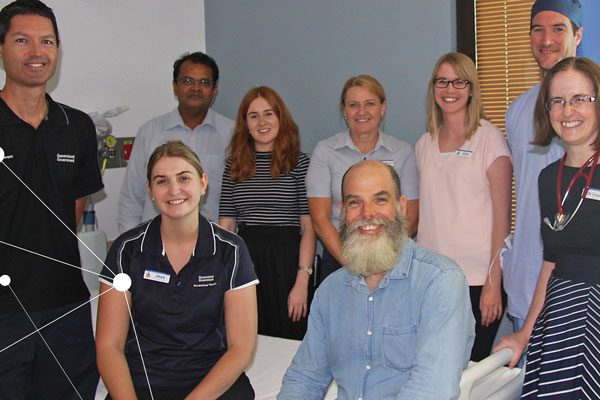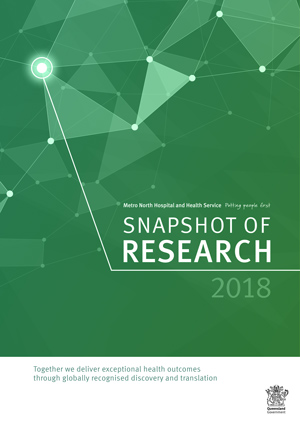Improving nutrition in hip fracture patients
Malnutrition in patients admitted to hospital with a hip fracture is a leading cause of increased length of stay, treatment costs, and poor health outcomes.
A multidisciplinary team of health professionals at The Prince Charles Hospital has developed an innovative tool to help clinicians determine whether enteral or tube feeding will benefit particular patients undergoing surgery as a result of a hip fracture.
Research shows that half of the patients admitted to hospital with a hip fracture were malnourished.
Principal Research Fellow Allied Health for The Prince Charles Hospital and University of Queensland, Dr Jack Bell said that hip fracture patients typically reported inadequate protein and energy intake upon admission to hospital.
“One of our early studies showed that less than 10 per cent of hip fracture patients were meeting their nutritional requirements,” Dr Bell said.
“Our patients are typically older and frail, and have been under nourished for quite some time prior to their admission.
“Having correct nutrition is critical for hip fracture patients in supporting their recovery from surgery, and restoring their independence so they can return home.
“However, surgery has its own challenges for getting patients to meet their nutritional requirements. Patients often don’t want to eat, are experiencing some pain, and have other medical conditions affecting their well-being.
“That’s why enteral feeding can be beneficial in helping patients meet their nutritional requirements.”
Until now, there has been no standard method to assist health professionals identify whether enteral feeding would benefit particular patients in this cohort.
The tool developed covers a broad range of areas for members of the multidisciplinary team to consider when deciding whether a patient is suitable for enteral feeding. These include how much patients are eating, whether they are malnourished, and treatment goals and preferences.
A key component of program to improve nutrition care has been understanding patient perception of enteral feeding.
A separate study showed that some patients did not want to be tube fed with a number of patients thinking they did not need it. However, it was identified that some of these patients did not understand the importance of nutrition.
“When educated about the importance of nutrition in assisting in their recovery and return home, a number of patients and their families changed their mind and said they thought they would say yes to enteral feeding,” Dr Bell said.
“Our research shows the decision to enterally feed a patient varies for each individual. It’s not a matter of one size fits all.
“Any clinical decision made using the tool should be accompanied by discussions with patients or family members to ensure the right patients are getting tube fed. It’s about shared decision making and appropriate informed consent.”


